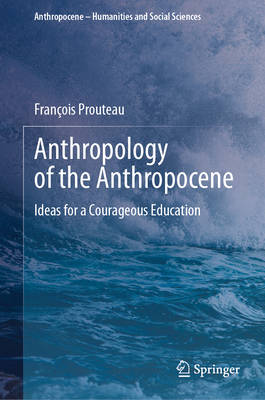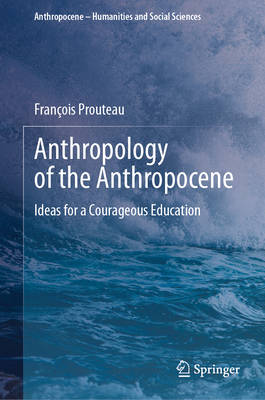
- Retrait gratuit dans votre magasin Club
- 7.000.000 titres dans notre catalogue
- Payer en toute sécurité
- Toujours un magasin près de chez vous
- Retrait gratuit dans votre magasin Club
- 7.000.0000 titres dans notre catalogue
- Payer en toute sécurité
- Toujours un magasin près de chez vous
Description
This book questions the epistemological foundations of education in the Anthropocene. It reviews a body of evidence that strongly supports the view that the Earth's systems are emerging into an epoch known as the Anthropocene. This volume examines a number of concepts including the political ecology and the modes of veridiction in the Anthropocene as well as philosophy, anthropology and history of the concept of courage and the humanities. It champions forward-looking educational initiatives and presents a new philosophy on education for the Anthropocene.
The concept of the Anthropocene extends to many fields of sciences. It is now anchored in a multidisciplinary scientific literature and recognized by both sides of the ideological and political battle of the 21st century, on which several controversies are grafted in a complex way. It also has a strong anthropological consistency: what kind of humans do we want to become? The author explores how the recognition of the crisis helps to see the history of humanity with unexpected freshness. This work contributes to an epistemological and paradigmatic reflection on the foundations of education in the Anthropocene epoch. The author has seized on the biogeophysical ruptures of the Anthropocene to develop a pedagogical and anthropological reflection in a stimulating and creative way. This volume is of interest to researchers of the Anthropocene, as well as to scholars in ecology, social sciences, pedagogy, and philosophy.
Spécifications
Parties prenantes
- Auteur(s) :
- Editeur:
Contenu
- Nombre de pages :
- 213
- Langue:
- Anglais
- Collection :
Caractéristiques
- EAN:
- 9783031754180
- Date de parution :
- 20-11-24
- Format:
- Livre relié
- Format numérique:
- Genaaid
- Dimensions :
- 163 mm x 238 mm
- Poids :
- 480 g

Les avis
Nous publions uniquement les avis qui respectent les conditions requises. Consultez nos conditions pour les avis.






